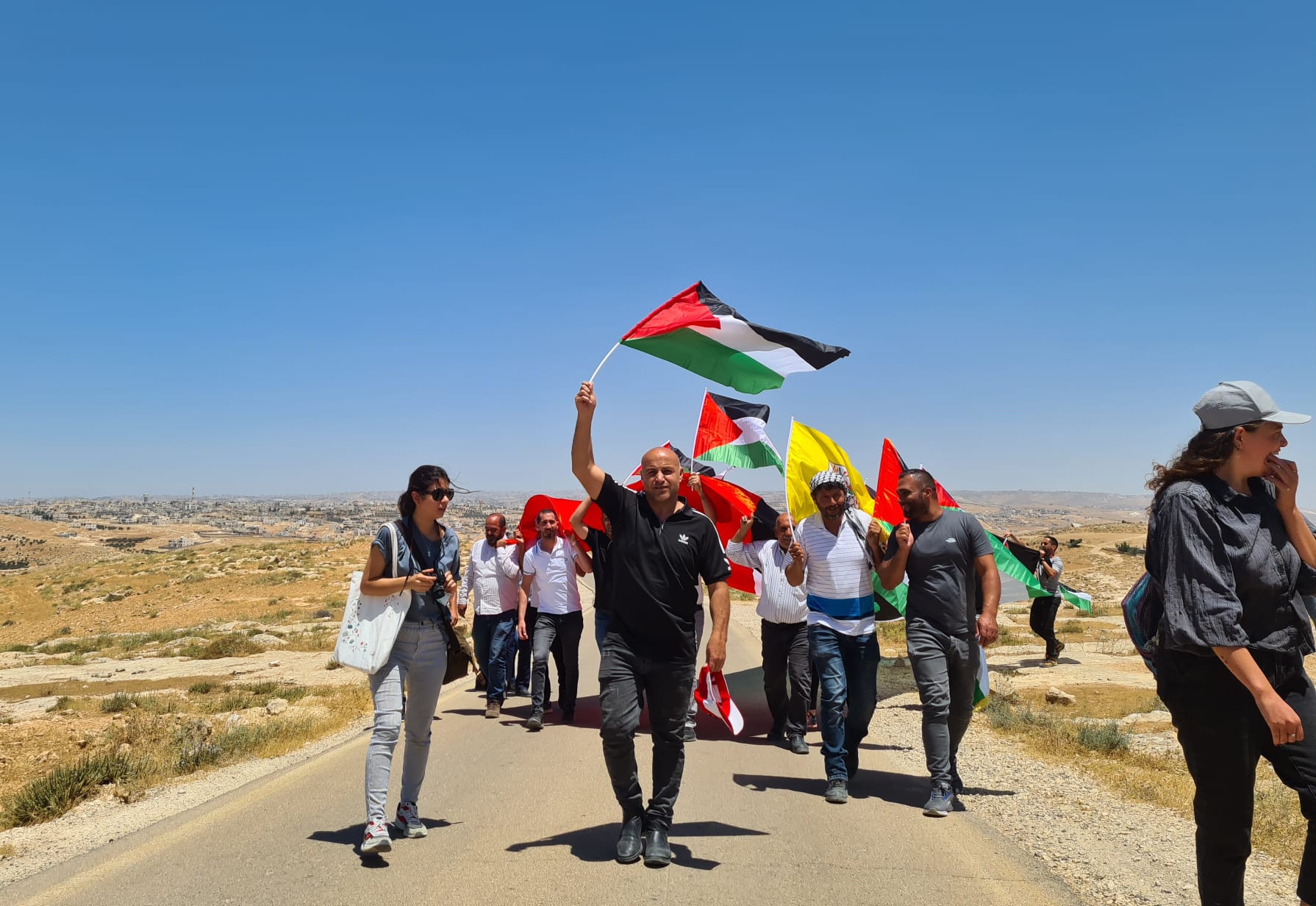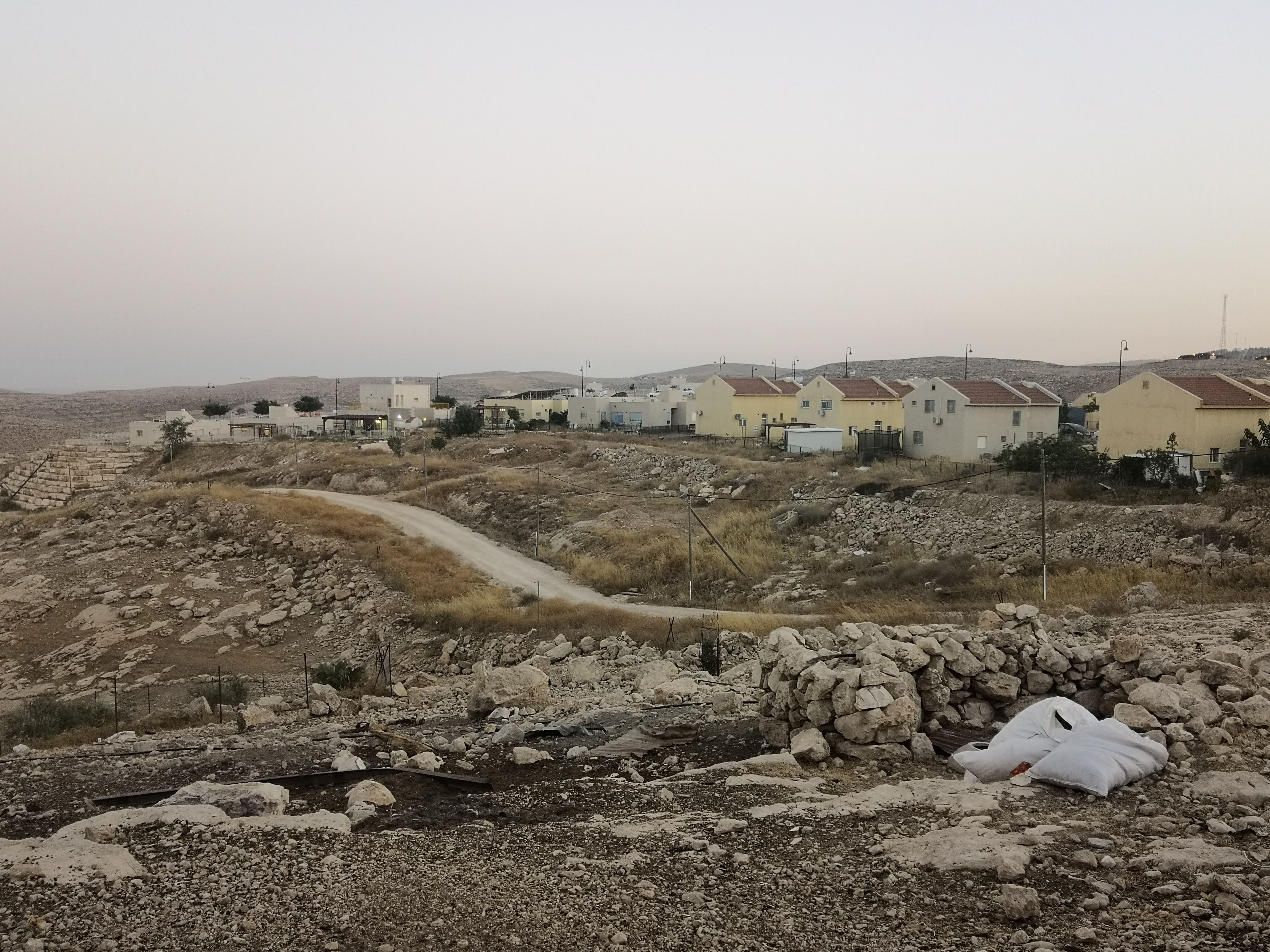Tag: Demolitions
-
ISM Call to Action: Save Masafer Yatta!
The International Solidarity Movement is calling all activists and supporters to take urgent action against Israel’s ethnic cleansing of the Masafer Yatta region in the occupied West Bank. What is Masafer Yatta?: Masafer Yatta is a rural region to the south of Hebron along the southern border of the occupied West Bank. It…
-
Call to Action: Join London protest against Israeli demolition ‘charity’ Regavim
On September 1st, UK Lawyers for Israel is hosting a talk by Regavim, a pro-settler NGO with charitable status, pivotal in speeding up demolitions of Palestinian homes across the West Bank and displacement of Bedouin villages in the Negev. What is Regavim? Regavim, ‘dedicated to the preservation of Israel’s land’, petitions courts to demolish homes…
-
Bedouin village of Um al-Kheir fights against new demolition threats
June 26 | International Solidarity Movement | Umm al-Kheir, south Hebron Hills, occupied Palestine The Bedouin village of Um al-Kheir in the South Hebron Hills have launched a new bid to save their homes from demolition. On Monday, activists from the village submitted a new master plan to the Israeli Civil Administration which, if accepted,…



